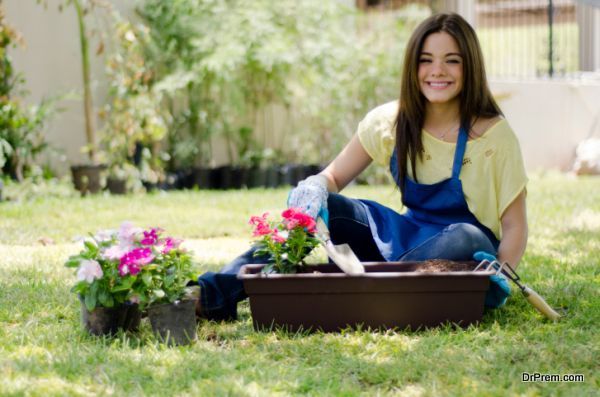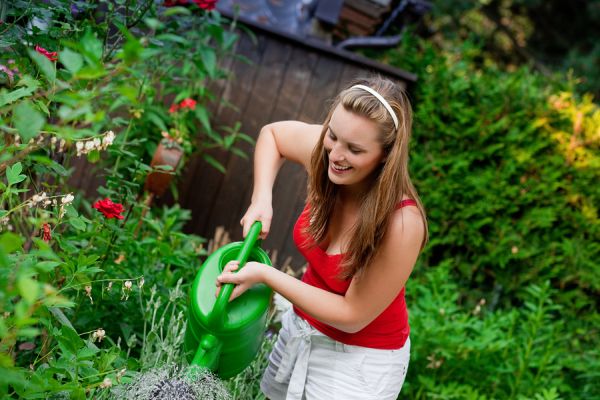A lot of us tend to have small gardens in our backyards. While most of us simply go about taking care of them without opting for too much hassle, only a few would stop to think about how they can make their garden a more eco-friendly space. First off, the environment you are living in is a major factor in choosing the type of grass you should have. If you find that the grass does not look well even after doing the things below, you might want to search for another one that is compatible with the temperature and humidity of the area. Bob Robinson posted a list on his website Best Of Machinery you can check. If you belong to the latter category, then consider the ideas in this article. Achieving an eco-friendly garden is not that hard a task. All you need are some DIY home improvement ideas that would help you achieve a beautiful garden with minimal carbon footprint. Accordingly, here are 7 simple but really effective tips to grow and maintain a green garden space.
Reuse kitchen scraps to make compost
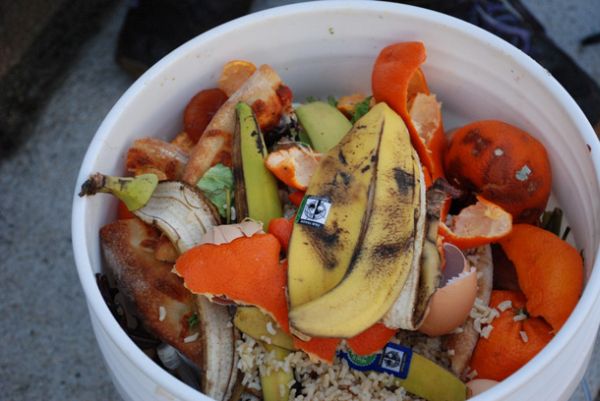
Rather than buying compost for your garden, consider making it yourself. All you need to do for this is to reuse kitchen food scraps by throwing them around the plants in the garden instead of in the dustbin. Compost is essentially called ‘gardener’s gold’ and can help fertilize the soil, supplying it with rich, plant loving nutrients. In addition to helping plants grow, compost can also boost soil texture, water retention and aeration, thus making your garden an oasis for plants. So stop buying commercial products and make your own compost to create a beautiful, eco-friendly garden.
Harvest rainwater in containers
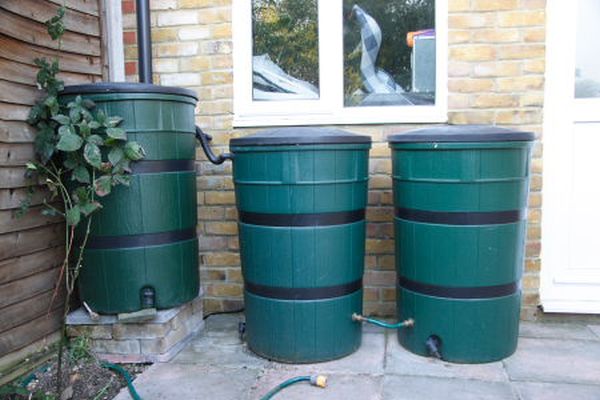
A lot of water tends to be wasted while watering the plants in the garden, thus leading to increased water costs. In most cases, tap water can contain high levels of chlorine and other minerals that can also affect your plants. So consider harvesting rainwater and use the same to water your plants. Sometimes, all it takes is just keeping an open barrel in the yard to collect rain water during rains or storms. You can also place a barrel underneath the roof’s rain gutter system to collect water that accumulates on the roof.
This method offers plenty of benefits, including reduced water costs, healthier plants and reduced risks of erosion and flooding (caused by storm water runoff from the roofs). Once the barrel has filled up, you can place a screen above it to keep away dirt and other debris, and use the water to feed your plants, which would definitely enjoy the fresh taste of chlorine free water.
Water plants sparingly
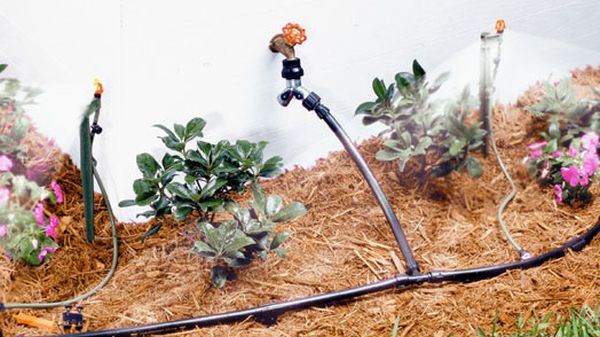
We tend to waste a lot of water while watering the plants. This can be avoided by adopting some smart watering habits, helping you reduce water costs as well as conserve water for dry spells. Installing drip irrigation systems and soaker hose will reduce water usage by 50% while adding compost and mulch to the soil will enable the latter to retain water for longer periods, thereby minimizing the need to water the plants frequently. Other options that would help use water sparingly while watering your plants include watering the plants near the roots and watering them early in the morning.
Water-saving flowers
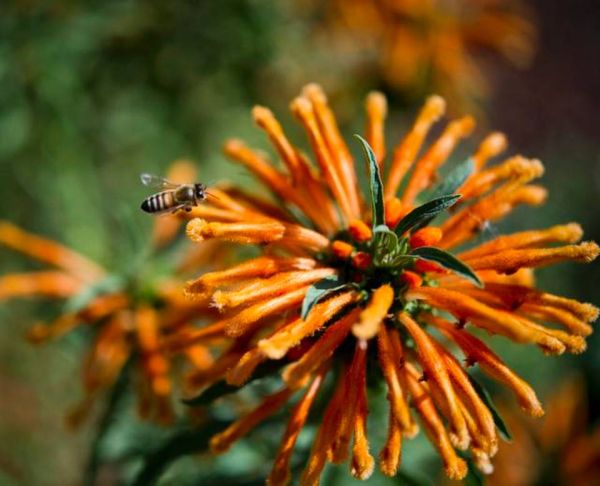
Opting to plant low maintenance plants in the garden would help you save plenty in terms of water and fertilizer costs. You can opt to plant a couple of these less fussy plants in your garden, thereby reducing your water bills to a great extent.
Diversified plants
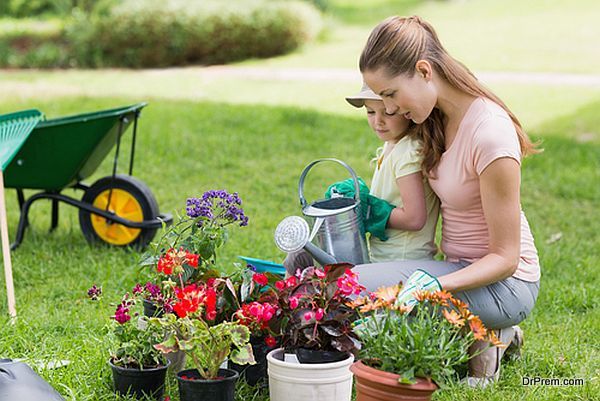
Planting several kinds of plants close to one another can help you keep pests away for longer periods. Chances are the pests of one plant would eat up the pests of the other plants, thus minimizing your pest issues to a great extent. This in turn, would reduce the need to buy pesticides in order to take care of them.
There are plants that would attract insects, birds, amphibians and reptiles, all of which are natural predators of pests. By inviting them into your garden, you will attain a pest free space with minimal effort and in a more natural way.
Cutting plants high
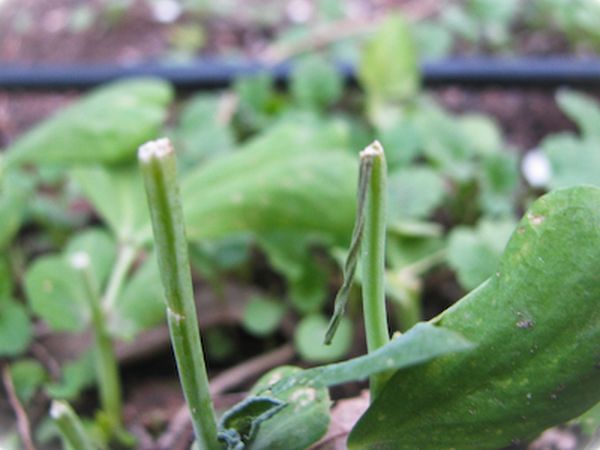
A healthy lawn can be achieved by setting the lawn mower to ct the blades high. Taller grass blades absorb more sunlight and can easily push away weeds, thus minimizing your need to use artificial weed killers. Cutting about one third of the height would also help the clipped blades decompose quickly, adding vital nutrients to the soil in the process.
Choosing organic fertilizers
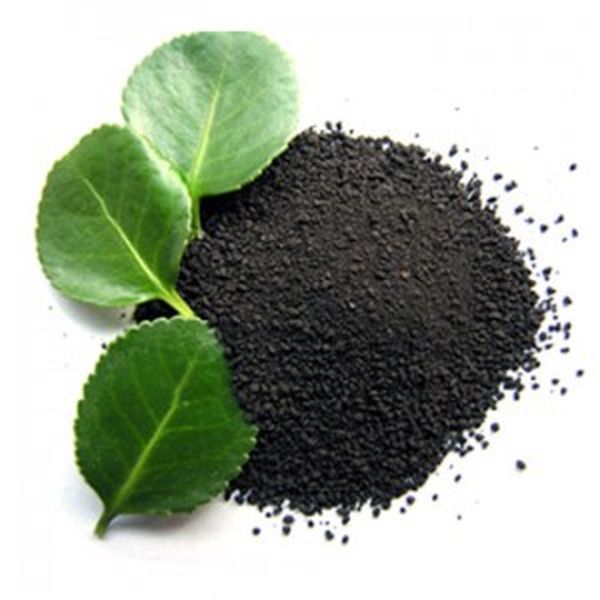
In case you need fertilizers for your plants, choose the organic variety over the synthetic ones. When compared to the latter, organic fertilizers would decompose gradually and nourish the soil as well as the plants over a period of time. In addition to this, they also keep your garden (and your family) safe from toxic chemicals often found in synthetic fertilizers.
Summary
A green, eco-friendly garden is not hard to achieve. The tips mentioned above would help you in the process and make your garden a green oasis with minimal effort on your part.


